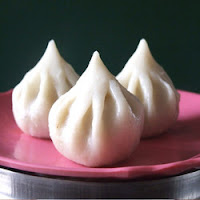"Badi ye", baṛī ye /baɽiː je/ (बड़ी ये) is used mainly for vowels. Also, it is used only in the final or isolated position. Here's an example: لڑکے laɽke, (लड़के/boys). It is also combined with the hamza to represent izaafat. But I shall be discussing that in a separate post.
Here is how it is written in various positions:
Here is how it is written in various positions:
This is my attempt at writing the harf ''badi ye" and a word which contains it ''aisa'' (thus...).
Then I noticed a coat-hanger lying about. Reminded me of a "badi ye"!
Et enfin, I stumbled across a Bashir Badr ghazal, rendered superbly by Chitra Singh which begins with the lafz "aisa":
Aisa lagta hai zindagi tum ho
ajanabi jaise ajanabi tum ho.















